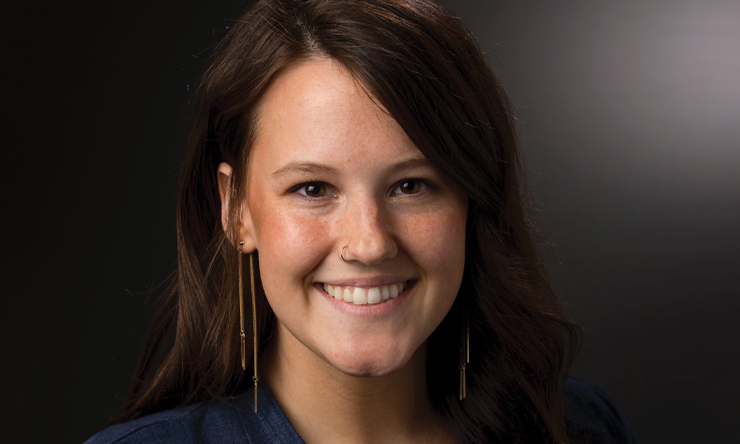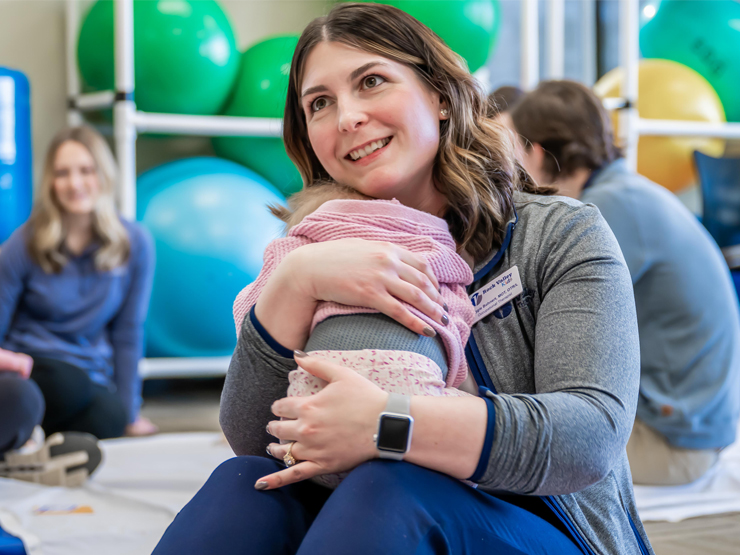Institute for Person-Centered Care 2018 Conference
In 2013, Bruce Chernof, MD, chaired a federal Commission on Long-Term Care. In the words of the Congressional statute that created it, the commission was charged with developing "a plan for the establishment, implementation, and financing of a comprehensive, coordinated, and high-quality system that ensures the availability of long-term services and supports for individuals in need of such services and supports, including elderly individuals, individuals with substantial cognitive or functional limitations, other individuals who require assistance to perform activities of daily living, and individuals desiring to plan for future long-term care needs."
You probably didn't read all of that.
Thankfully, Dr. Chernof has a remarkable ability to make the complicated business of healing health care sound so much simpler.
And, more thankfully still, achievable.
Dr. Chernof is a leader of the growing movement to create a transformative model for person-centered care. As such, he is a strong proponent of the Institute for Person-Centered Care at St. Ambrose .
"I think that the perspective that the way we better deliver outcomes and control costs can only be seen through a medical lens is frankly wrong," he said. "It's too narrow. The Institute is part of this larger discussion but it's taking a different tack. And there is no other place in the country that is doing that. I think it's great to be first to market. That's a very powerful place to be."
A graduate of Harvard University and the School of Medicine at UCLA, Dr. Chernof currently serves as president and CEO of the SCAN Foundation, which is one of the largest foundations in the United States focused entirely on improving the quality of health and life for seniors. He formerly was director and chief medical officer for the Los Angeles County Department of Health Services. He is an adjunct professor at the UCLA School of Medicine .
Dr. Chernof will provide one of four keynote addresses at the 2018 Institute for Peron-Centered Care Conference on May 31 and June 1 at the Rogalski Center at St. Ambrose. The following is Q&A with Bruce Chernof on the state of health care in America and the hopes for bipartisan solutions to improve it.
What will be the topic of your keynote address?
"I'm going to be focusing on the broader argument for why value-based, person-centered care makes sense - how it fits into the broader value-based discussion we're having now in the country and what it is going to take for us to get there. How we think about quality, how we think about delivery system and how we think about what people actually want and need."
Given that cost is a primary issue in the current health care debate, can we afford to make such sweeping changes?
"I think the real question is can we afford not to. Because the most expensive, least effective option is to continue on the track we're on. As health care continues to grow as a piece of the overall business landscape in the U.S., it swallows up a larger and larger percentage of the gross domestic product.
"We have the worst health care outcomes for a whole variety of folks in a whole variety circumstances despite being the most expensive delivery system in the world. And it's the way we deliver care that creates that inefficiency. And so the need to transform how we think about care is the only way to better use the resources we have.
"We have added years to our lifespan, which is a lovely thing, but during some of those added years, we're going to need a little bit of help. Almost everybody will need a little help. And almost half of people over age 55 will actually need some fairly significant amount of help. Delivering it in the current broken system we have only guarantees that we are going to spend more money inefficiently."
"Think about working people with kids. You get home from work and find out your kid was sent home from school because they are sick. Now you have to build a plan at 5:30 in the evening and you’re sort of whittled back to the emergency room or trying to call your pediatrician’s office to find out where they might send you. It’s very much a scavenger hunt. So the health care system is not a problem just for people with high needs. We all experience a system that’s not particularly responsive to us."
— Dr. Bruce Chernof
More than 600,000 Americans go bankrupt each year due to large medical bills, whereas that doesn't happen anywhere else in the developed world. Is that accurate?
"Right. And there are many data points like that. It's a little bit like the Milky Way. We spend an enormous amount of money in a very disorganized way. And, frankly, it would be one thing if it was disorganized and people said, ‘Yeah, but I love it. This is exactly how I want to get health care.' But that isn't how most people want to get health care. Particularly when you're really sick, but even when you're not.
"Think about working people with kids. You get home from work and find out your kid was sent home from school because they are sick. Now you have to build a plan at 5:30 in the evening and you're sort of whittled back to the emergency room or trying to call your pediatrician's office to find out where they might send you. It's very much a scavenger hunt. So the health care system is not a problem just for people with high needs. We all experience a system that's not particularly responsive to us.
"But when you become chronically ill or have functional limitations and have more interactions with the health care system, it's even more frustrating and risky. It's not a system any of us would sign up for. It's just that when you're younger and well most of the time, it seems fine. The best kind of health care system is the one I don't need to use. And so that's part of the problem. But you see little bits of innovation - things like ‘minute clinics' popping up in pharmacies. At first, the health care system is like a porcupine: all the spines come out. ‘Oh, it's a terrible idea. It's an awful way to get care.' But it's exactly what people want. Right? And, so, through some amount of misgivings and grumbling, you start to see those at least attached to the health care system in some fashion.
"Person-centered care really gets at transforming the system for those who use it a lot. And a very small percentage of people use the vast majority of services in the U.S. So we have to change the way we deliver care for them because that's where the cost drivers are. So back to the question, ‘Can we afford to?' My response is can we afford not to."
And how do we make this happen across the aisle? Don't we face a huge divide right now?
"Well, yes and no. Aging doesn't actually ask what party you are signed up for or how you vote. We will all age and we will all have needs. Almost everybody in Congress, and most people in state legislatures, have some experience caring for parents or grandparents or family friends where they perceive that the system is difficult, unfriendly and opaque at its very best for those with more complicated needs, particularly needs that are chronic. Something like a third of all millennials have been care-givers. The narrative that they have no experience with this is actually not true. That's very important.
"So my first observation would be that aging does not follow a particular party and that all Congressional members understand that aging is a challenge. Now, how they think about solutions is where you start to see some cleaving along party lines. But I will say, one of the things in the budget that just got passed this year is the Chronic Care Act, a piece of legislation that had been worked on for a year. It's not completely transformative, but it takes major steps toward changing the way both Medicare and, to a lesser extent, Medicaid respond to the needs of chronically ill people and particularly older chronically ill people. "
Was that a bipartisan effort?
"Let me tell you how bipartisan. The Chronic Care Act was bipartisan from the very get go. It has an enormous number of sponsors from both parties. It actually passed the Senate on a voice vote, 98-0. That's pretty bipartisan.
"The Chronic Care Act does things like make permanent dually eligible special needs programs in Medicare Advantage. It creates the opportunity for the very first time for a subset of very high needs Medicare beneficiaries who don't qualify for Medicaid but have serious functional needs to get help from Medicaid. Medicare now offers a tailored set of benefits to help keep people at home and out of nursing homes. It extends and creates an opportunity for a whole bunch of new ways for tele-health systems to be used. It creates the opportunities for accountable care organizations that predominantly operate in parts of the country that don‘t have a lot of managed care that will allow people to actively choose to participate in a health plan.
"Bipartisanship is always hard to find. And it's particularly hard to find at this fairly fractious moment in our history. But I'll just say 98-0, followed by adoption of what ultimately was passed by the House and the Senate. I think that's a powerful example that the answer is yes."
"I ran the Health Department in Los Angeles. If I wanted to get the CEOs of all the hospital systems together and try to get them to agree to do something, it would be a bit of a fool’s errand. But I think you can actually do something like that in the Quad Cities. And I think the idea that it can get real stuff done because it’s just the right size — kind of that Goldilocks thing — is pretty great.”
Dr. Bruce Chernof
How can the Institute for Person-Centered Care at St. Ambrose and conversations like those that are going to take place during next month's inaugural conference advance efforts to bring person-centered care from concept to reality?
"It is powerfully important for a number of reasons. Health care is a big field and there are lots of folks plowing it, but I think the Institute is plowing a really unique part of the field in a way that no other organization is in the country.
"I love the distinction between patient-centered and person-centered. The health care delivery system today is purpose-built to meet the needs of those who pay for care and those who provide care. But those who use care are not really actively part of the discussion. I'm a doctor and I love being a doctor, so I don't want to sound like a heretic. But there is this fundamental bias that the health care system is the center of the universe and everything orbits around it. And that's just not true.
"Even people who are seriously chronically ill spend most of their time living in community. They are with their families, going to church, doing whatever, living their lives. They are patients only when they're plopped in the doctor's office or sitting in a hospital bed in one of those lovely gowns that open in the back. I think the perspective that the way we better deliver outcomes and control costs can only be seen through a medical lens is frankly wrong. It's too narrow. Too much of the variations that drive health care costs come from the way people live theirs lives - what behavioral health supports look like, what community supports look like, and how those things interact with the health care delivery system. The Institute is part of this larger discussion but it's taking a different tack. And there is no other place in the country that is doing that. It's almost a translation science exercise. I think it's unique in that way. I also think it's great to be first to market. That's a very powerful place to be.
"I would hope a decade from now there are two dozen institutes that look like this, because I think a second really important point is that health care looks really different in different parts of the country. There aren't one-size-fits-all solutions. And I think just assuming that the models that work well in the northeast and on the west coast - which have a lot of kind capitated, delegated managed care with big medical groups and big hospital systems - is a lot less applicable in different parts of the country. I really like the idea that by setting this up in Davenport, Iowa, it's a learning lab for the rest of the country, which has a very different model of care. We need a lot of different solutions.
"Atul Gawande wrote a paper a number of years ago that observed that what we needed in health care was something that looked akin to what the Farm Bureau does - where what you have is a lot of local experts who really know the region. If you're a farmer in California growing truck vegetables, citrus and nuts, what you need to know is really different than what people in the middle of the country growing grain crops need to know. The Farm Bureau really created practical knowledge that was relevant in different parts of the country. And I like the idea that there could be multiple Institutes of Person-Centered Care that are responsive to the way care is delivered in those parts of the country and consistent with the resources that are available. What works in Minnesota, I don't know that it works in Kentucky. I think that it is a really novel concept that you have as a regional sink of expertise.
"What's also great about the institute at St. Ambrose is that it is cross-disciplinary. It's not attached to a medical school, beholden to the medical model. It's bringing in all different medical disciplines and other professions into the discussion. It's a place where others in the school can come learn. I think that cross-disciplinary quality is really powerful.
"And then frankly I think there is something that is really interesting about the Quad Cities area. It's big enough that you can do real stuff but it's also intimate enough that you can get the major health systems into the room and they can choose to dramatically change the way that services are delivered, the way partnerships are formed. I ran the Health Department in Los Angeles. If I wanted to get the CEOs of all the hospital systems together and try to get them to agree to do something, it would be a bit of a fool's errand. But I think you can actually do something like that in the Quad Cities. And I think the idea that it can get real stuff done because it's just the right size - kind of that Goldilocks thing - is pretty great."
Share This Story



